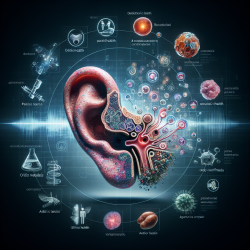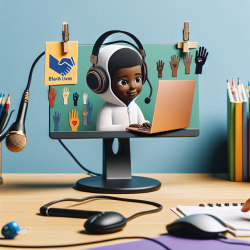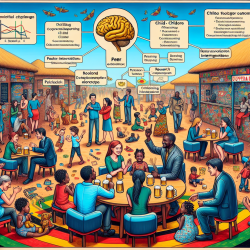As a practitioner in the field of speech-language pathology, the quest for effective strategies and resources to support our clients is ongoing. Aphasia, a complex language disorder resulting from brain injury, poses significant challenges not only for those experiencing it but also for the professionals tasked with their rehabilitation. A pivotal resource in this endeavor is "Word Finding: A Language Rehabilitation Manual for Aphasic Adults" by Daniel I. Carlson. This manual serves as a comprehensive guide, offering a structured approach to remediate word-finding difficulties—a common hurdle faced by individuals with aphasia.
The manual is not just a collection of exercises; it is a testament to the understanding that word-finding deficits cut across different types of aphasia, making the remediation of these skills a central goal in therapy. What sets this manual apart is its hierarchical arrangement of exercises, designed to progressively challenge and support clients through their rehabilitation journey. However, it also emphasizes the need for flexibility, allowing therapists to tailor the sequence of exercises to meet the unique needs of each client.
Implementing Strategies from the Manual
- Starting with the Basics: The manual begins with exercises that require more automatic responses, such as completing sentences with predictable outcomes. This foundation supports clients in re-establishing basic language structures and confidence in their communicative abilities.
- Progressing to Complex Tasks: Gradually, the exercises become more challenging, requiring voluntary, less predictable responses. This transition is crucial for clients as it mirrors real-life communication scenarios, requiring them to retrieve and use words in more dynamic contexts.
- Utilizing Facilitation Techniques: A range of facilitation cues, including phonetic, semantic, gestural, or written prompts, are detailed within the manual. These cues are instrumental in guiding clients through the exercises, with the ultimate goal of reducing their reliance on such supports.
- Incorporating Personalization: The manual encourages therapists to personalize the exercises, using the client's interests and experiences as a basis for therapy materials. This personalization not only enhances engagement but also ensures that the therapy is meaningful and contextually relevant to the client.
Encouraging Further Research and Development
While "Word Finding" is a valuable tool in its own right, it also serves as a springboard for further research and development in the field of aphasia therapy. It highlights the need for ongoing exploration into the nuances of word-finding difficulties and the development of innovative strategies to address them. Therapists are encouraged to not only apply the techniques outlined in the manual but also to contribute to the body of knowledge through their observations and adaptations of the exercises.
Expanding the Therapist's Toolkit
Adopting the exercises and strategies from "Word Finding" can significantly expand a therapist's toolkit, offering new ways to approach the complex challenge of aphasia rehabilitation. The manual's structured yet flexible approach allows for creativity in therapy planning, ensuring that each client's individual needs are met. Furthermore, the emphasis on gradual progression and facilitation techniques provides a roadmap for therapists, guiding them in supporting their clients effectively through the rehabilitation process.
Conclusion
"Word Finding: A Language Rehabilitation Manual for Aphasic Adults" is more than just a resource; it is a catalyst for professional growth and client progress. By implementing its strategies, therapists can enhance their skills, offering more targeted and effective support to individuals with aphasia. Moreover, the manual's call for further research and adaptation underscores the dynamic nature of speech-language pathology, inviting professionals to continuously evolve their practices in response to new insights and client needs.
To read the original research paper, please follow this link: Word Finding: A Language Rehabilitation Manual for Aphasic Adults.










